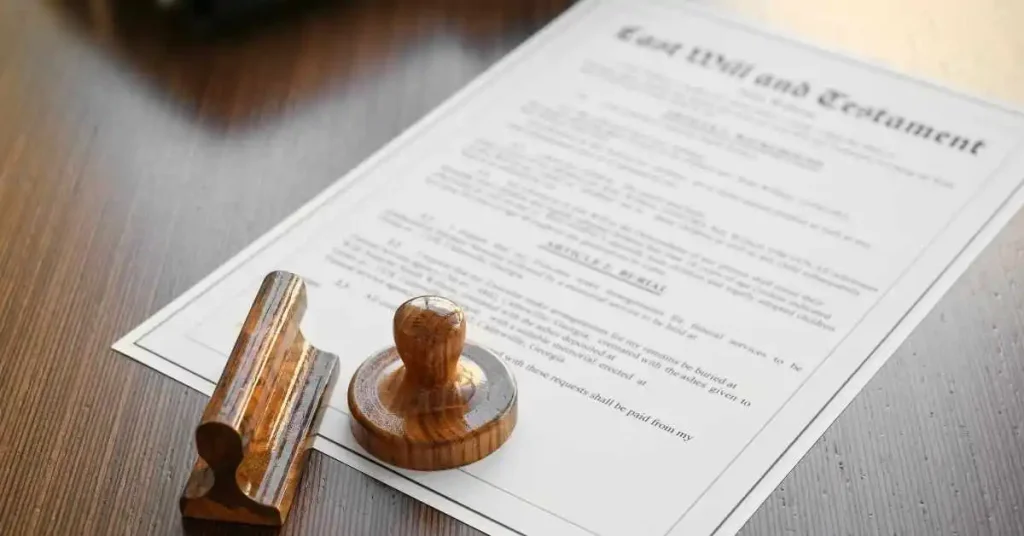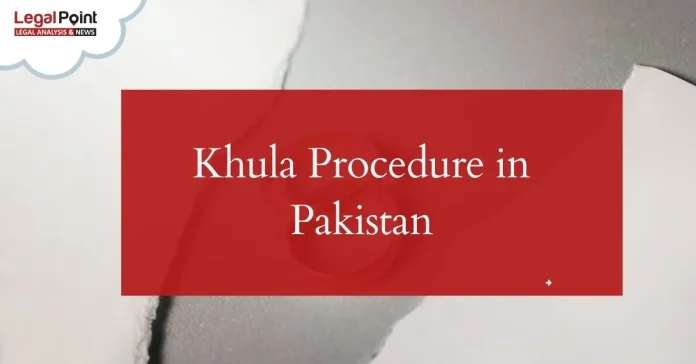Khula is a legal right granted to women under Islamic law in Pakistan, allowing them to seek dissolution of marriage when they cannot continue their marital relationship.
The Khula procedure in Pakistan is conducted through Family Courts, where the wife files a Khula petition based on reasonable grounds.
Understanding this process is essential for any woman seeking legal separation through Khula in Islam.
This guide explains everything about Khula requirements, legal formalities, involved costs, and the importance of court appearance for Khula.
Table of Contents
What Is Khula in Islam?
In Islamic teachings, Khula is the process through which a woman can seek a divorce from her husband by returning her dower (mehr).
It is a part of the Islamic legal system and is different from Talaq, which is initiated by the husband.
According to Islamic law in Pakistan, women are given the right to end their marriage if they cannot live within the marriage in peace and harmony.
This right is a vital aspect of women’s divorce rights under Islamic divorce principles.
Khula vs Talaq – What’s the Difference?

While Talaq is a unilateral right of the husband, Khula is a woman’s legal right to initiate the dissolution of marriage. The main differences include:
- Talaq does not require court involvement (initially), whereas Khula through the court is mandatory.
- In Khula, the wife must approach the Family Court in Pakistan and return the mehr or agreed compensation.
- After reviewing the Khula application and ensuring valid reasons for separation, the court grants a Khula decree.
Understanding Talaq vs Khula is critical when choosing the appropriate legal path for ending a marriage.
Grounds for Khula in Pakistan
The Khula petition must mention valid grounds for Khula. Common legal grounds accepted by the court include:
- Cruelty or domestic abuse
- Non-maintenance by husband
- Incompatibility or irreconcilable differences
- Long-term absence of husband
- Failure to fulfill marital obligations
Court marriage dissolution is only granted after verifying these claims.
These grounds must be supported with evidence or testimony during Khula’s court appearance.
Legal Requirements and Khula Documents
Before initiating the Khula process, certain documents are required. These Khula requirements include:
- CNIC copy of the wife
- Marriage certificate or Nikkah Nama
- Recent photographs
- Address of both spouses
- Details of Mehr paid/received
- Grounds for Khula are mentioned in the application
These Khula documents are submitted with the Khula form in the Family Court of Pakistan. Make sure all information is accurate and complete to avoid unnecessary delays.
If you need guidance or legal representation for filing Khula in Pakistan, contact our experienced legal team today or call us at +92 333 7703712.
How to File a Khula Application in Pakistan

Filing a Khula in Pakistan involves submitting a legal petition in the Family Court based on Islamic and Pakistani family laws.
Here’s how the process works step by step:
Step 1: Drafting the Khula Petition
The wife initiates the process by submitting a written Khula petition in the Family Court.
This document includes personal details, marriage history, reasons for Khula, and details of Mehr (dower).
Step 2: Submitting to Family Court
The petition is filed in the relevant Family Court. Once submitted, the court schedules the first hearing and sends a Khula notice to the husband for his appearance.
Step 3: Court Hearings and Reconciliation
The court attempts reconciliation between the parties. If efforts fail and the wife maintains her stance, the judge proceeds with the case based on the presented facts.
Step 4: Court Decree for Khula
After examining the evidence, the Family Court may issue a Court decree for Khula, legally dissolving the marriage.
Step 5: Union Council & Divorce Certificate
The court sends a copy of the decree to the Union Council. After 90 days, the Union Council issues the Divorce Certificate, finalizing the dissolution of marriage.
Court Appearance for Khula and Role of Lawyers
In most cases, the wife is required to appear at least once in court for verification of facts. The court judgment for Khula is passed only after confirming the details.
While filing Khula without a lawyer is possible, legal representation from an experienced family law expert is highly recommended for better guidance, especially if the case involves custody after Khula or maintenance rights.
A Khula lawyer can ensure all documents are in order and represent the client during court hearings.
Khula Duration – How Long Does It Take?
The average Khula duration in Pakistan is 3 to 6 months, depending on:
- Court schedule
- Complexity of the case
- Whether the husband responds or contests
- Issues like child custody or a divorce certificate
- If the husband does not appear or refuses reconciliation, the court may proceed ex parte and grant judicial divorce.
Khula Legal Fees and Court Costs
The Khula legal fees vary depending on the lawyer’s expertise and city of filing. Generally, you should expect to pay:
| Item | Estimated Cost (PKR) |
|---|---|
| Court Fee | 100 – 200 |
| Lawyer’s Fee | 15,000 – 50,000 |
| Documentation & Misc. | 1,000 – 2,000 |
Women’s legal aid and NGOs often provide legal help for women who cannot afford these charges.
Khula Certificate and Court Decree

Once the court grants Khula, a court judgment or court decree for Khula is issued. After that:
- The decree is submitted to the Union Council
- The Council processes the divorce registration
- A Khula certificate is issued confirming the dissolution of marriage
This certificate serves as the legal proof of divorce under Islamic law in Pakistan.
Custody After Khula and Maintenance Rights
After Khula, the court also decides on custody after Khula based on the child’s best interests.
The mother generally receives custody for minor children, and the father is liable to provide maintenance.
Maintenance rights are determined separately and may include education, health, and living expenses of the children.
Right to Divorce Clause in Nikkah Nama
Many women are unaware of the right to divorce clause in the Nikkah Nama.
If this clause is marked “yes” and signed, the woman has delegated power to divorce (Talaq-e-Tafweez).
This is different from Khula, as it doesn’t require court involvement.
Understanding this right is essential for protecting the female legal rights granted under the Islamic legal system.
Can Khula Be Filed Without a Lawyer
Yes, Khula without a lawyer is legally allowed.
However, managing the legal process, drafting accurate documents, and attending hearings without guidance can be challenging.
For women unfamiliar with family laws in Pakistan, seeking support from a family law expert or a women’s legal aid organization ensures smoother proceedings and safeguarding of all women’s rights Pakistan.
If you need guidance or legal representation for filing Khula in Pakistan, contact our experienced legal team today or call us at +92 333 7703712.
Why Legal Help Is Essential
Navigating the divorce process in Pakistan involves technical steps, including:
- Preparing proper documents
- Meeting all Khula requirements
- Responding to the Khula notice and the Union Council notice
- Ensuring a fair court judgment, Khula
Hiring a skilled Khula lawyer or seeking assistance from legal help for women’s centers can make a major difference.
Conclusion
The Khula procedure in Pakistan offers a structured, legal pathway for women who seek to end a marriage under Islamic divorce principles.
From preparing the Khula form and appearing in court to obtaining the Khula certificate, every step is governed by the family laws of Pakistan.
With the support of an experienced family lawyer or legal aid, women can claim their legal rights, pursue marriage dissolution, and move toward a safer future.
If you need guidance or legal representation for filing Khula in Pakistan, contact our experienced legal team today or call us at +92 333 7703712.



